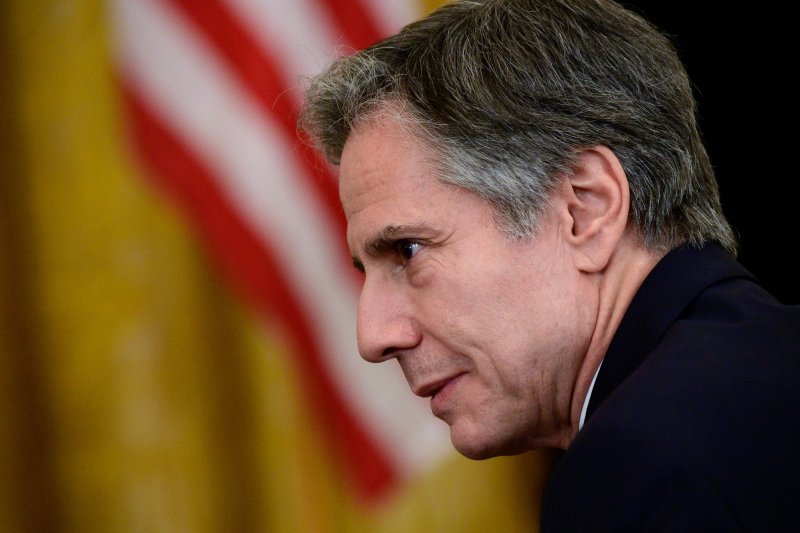1 of 4 | U.S. Secretary of State Antony Blinken spoke with his South Korean counterpart Chung Eui-yong on Friday to discuss ways for the allies to engage with North Korea. Photo by Erin Scott/UPI |
License Photo
SEOUL, Aug. 6 (UPI) -- U.S. Secretary of State Antony Blinken and South Korean Foreign Minister Chung Eui-yong held a phone conversation on ways to engage with North Korea, including the prospect of humanitarian aid, both of their offices said Friday.
"The secretary and the foreign minister reaffirmed their commitment to complete denuclearization and establishment of permanent peace on the Korean Peninsula, and the secretary confirmed U.S. support for inter-Korean dialogue and engagement," State Department spokesman Ned Price said in a statement.
The two "discussed recent developments in the DPRK and agreed to explore humanitarian initiatives on the Korean Peninsula," Price said. The Democratic People's Republic of Korea is the official name of North Korea.
South Korea's foreign ministry released a statement saying Washington and Seoul "agreed to hold detailed discussions on ways to cooperate with North Korea, such as humanitarian cooperation."
Last month, North Korea accused the United States of using humanitarian aid for "sinister" purposes.
However, North Korea's need for humanitarian assistance could be growing as severe weather may be exacerbating food shortages. The country faced a heatwave and a period of drought earlier this summer, and on Thursday state media reported on heavy rains that flooded crops.
In June, North Korean leader Kim Jong Un acknowledged that the food situation was "now getting tense" due to crops being damaged by typhoons that struck last summer.
The United Nations estimated in June that North Korea was short 860,000 tons of food and warned that the country could face a "harsh lean period" between August and October.
The administration of South Korean President Moon Jae-in has made closer relations with North Korea a key priority, but after a period of diplomatic rapprochement in 2018 and 2019, interactions between the two Koreas have been strained.
The relationship has seen a thaw in recent weeks with the re-establishment of communications hotlines that had been severed by Pyongyang in June of last year.
However, Kim Yo Jong, the sister of Kim Jong Un, warned on Sunday that joint military drills between the United States and South Korea scheduled for this month could "seriously undermine" efforts at restoring trust between the two Koreas.
There has been a growing public debate within South Korea's ruling Democratic Party over whether to postpone the joint exercises, which Pyongyang has long characterized as a dress rehearsal for an invasion.
Washington's nuclear negotiations with North Korea have also been at a stalemate since a February 2019 summit between Kim Jong Un and then-U.S. President Donald Trump failed to produce an agreement.
The Biden administration has signaled its willingness to engage diplomatically with Pyongyang, using a policy it characterizes as a "calibrated and practical approach."
During a visit to Seoul, U.S. special envoy to North Korea Sung Kim said Biden administration officials would meet with Pyongyang's negotiators "anywhere, anytime without preconditions."
North Korea has so far publicly rejected such overtures, with Foreign Minister Ri Son Gwon saying in June that Pyongyang was "not considering even the possibility of any contact with the U.S." The North has been seeking the easing of international sanctions in exchange for any concessions it would make in dismantling its nuclear program.















